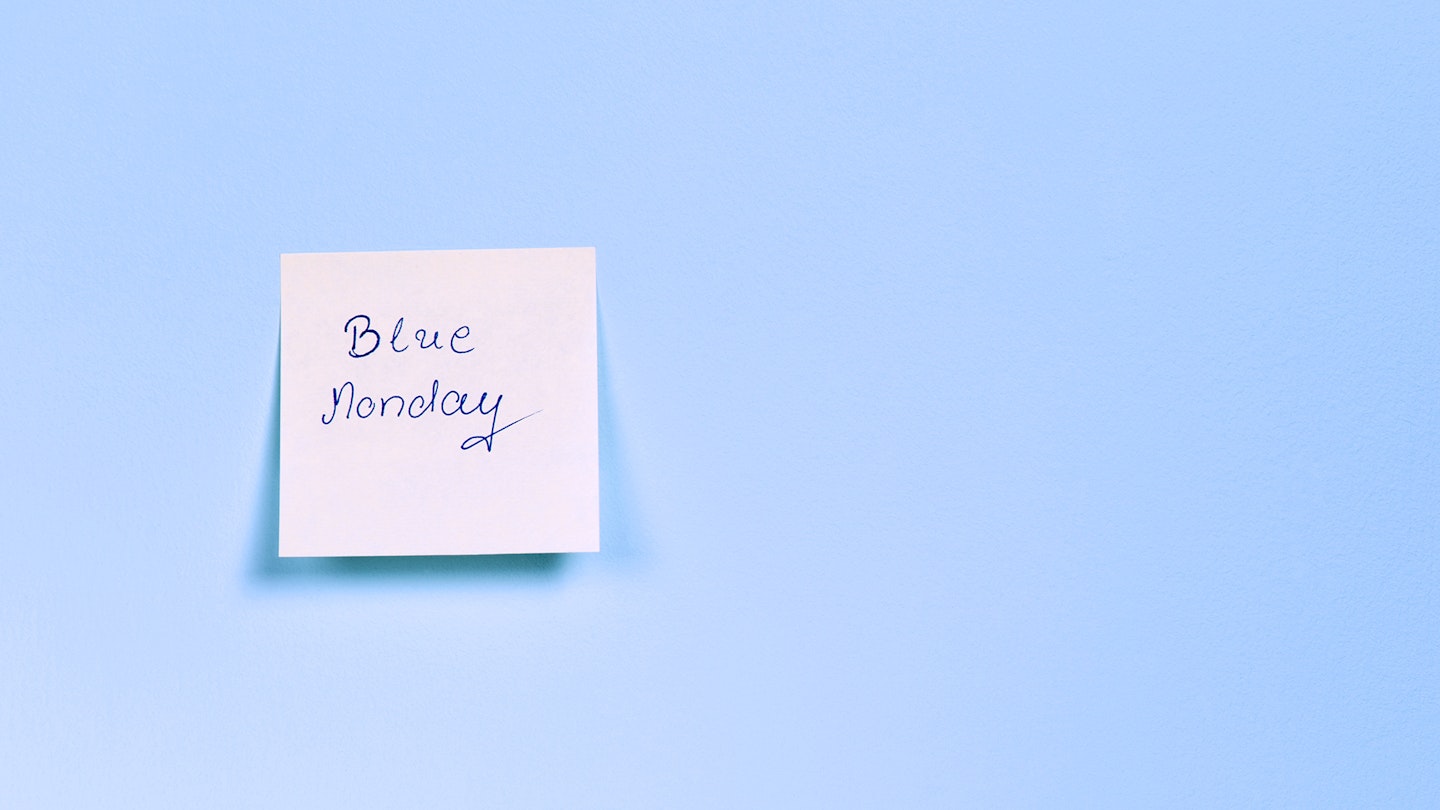‘Tell me how do I feel
Tell me now, how do I feel’
Blue Monday. What is it, other than a New Order anthem? Allegedly, it’s today, the third Monday in January aka the most depressing day of the year. Except, there is absolutely no evidence to suggest that this is the case.
In recent years, Blue Monday has trended on Twitter and popped up all over the media. Through it mental health is commodified by brands who want to offer us solutions and hacks for dealing with this difficult day. As you all know by now, they tend to involve us parting with our cash and buying things to make us feel better.
The concept of Blue Monday is damaging for several reasons. Perhaps the most important one being that it plays into certain stereotypes about depression: you’re only depressed in winter, you’re only depressed after Christmas when there aren’t any public holidays to look forward to and depression is something that society feels as one giant homogenous mass. Blue Monday has created a generalized narrative about depression which minimizes how lonely and isolating it can be.
**READ MORE: Natural Anti-Depressants **
Discover: Natural Anti Depressants
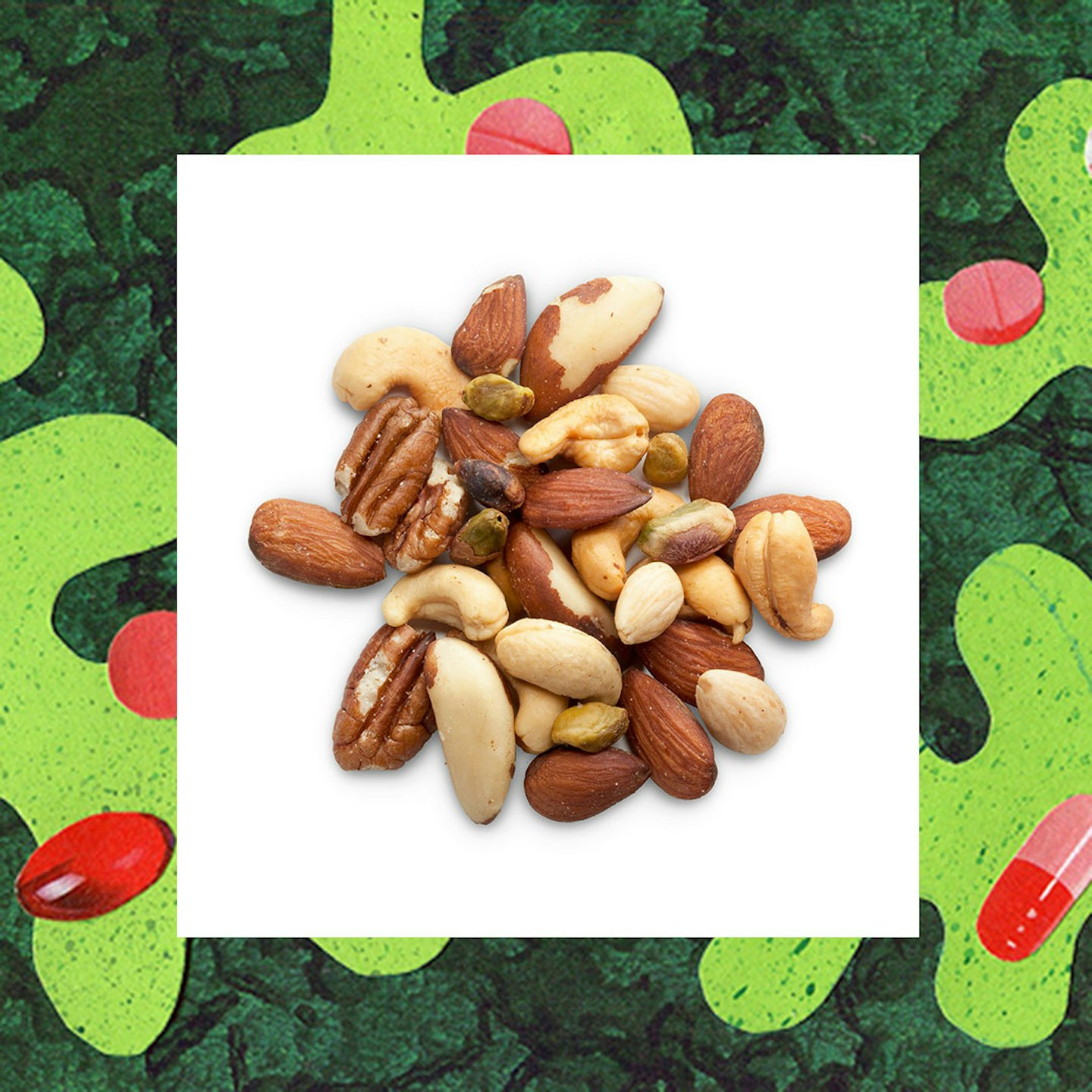 1 of 11
1 of 11Omega 3
Omega-3 fatty acids are essential minerals which reduce inflammation and are vital to brain functions such as mood and memory. Your body doesn't produce them naturally so you can only get them in you via food (like fish, nuts and seeds) or dietary supplements.
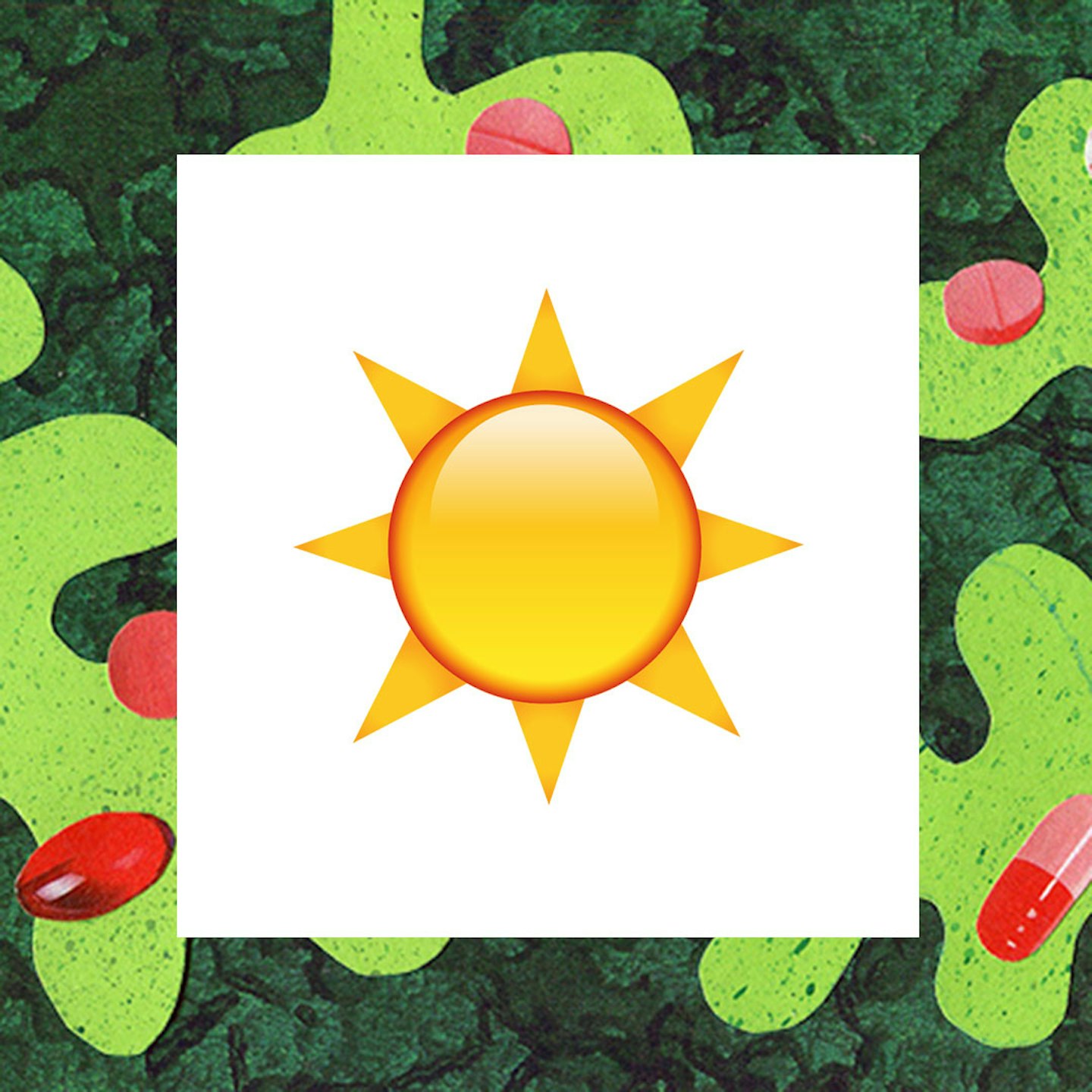 2 of 11
2 of 11Vitamin D
In addition to bone health, Vitamin D can play a vital role in the areas of the brain that are linked to the development of depression and other mental health problems.
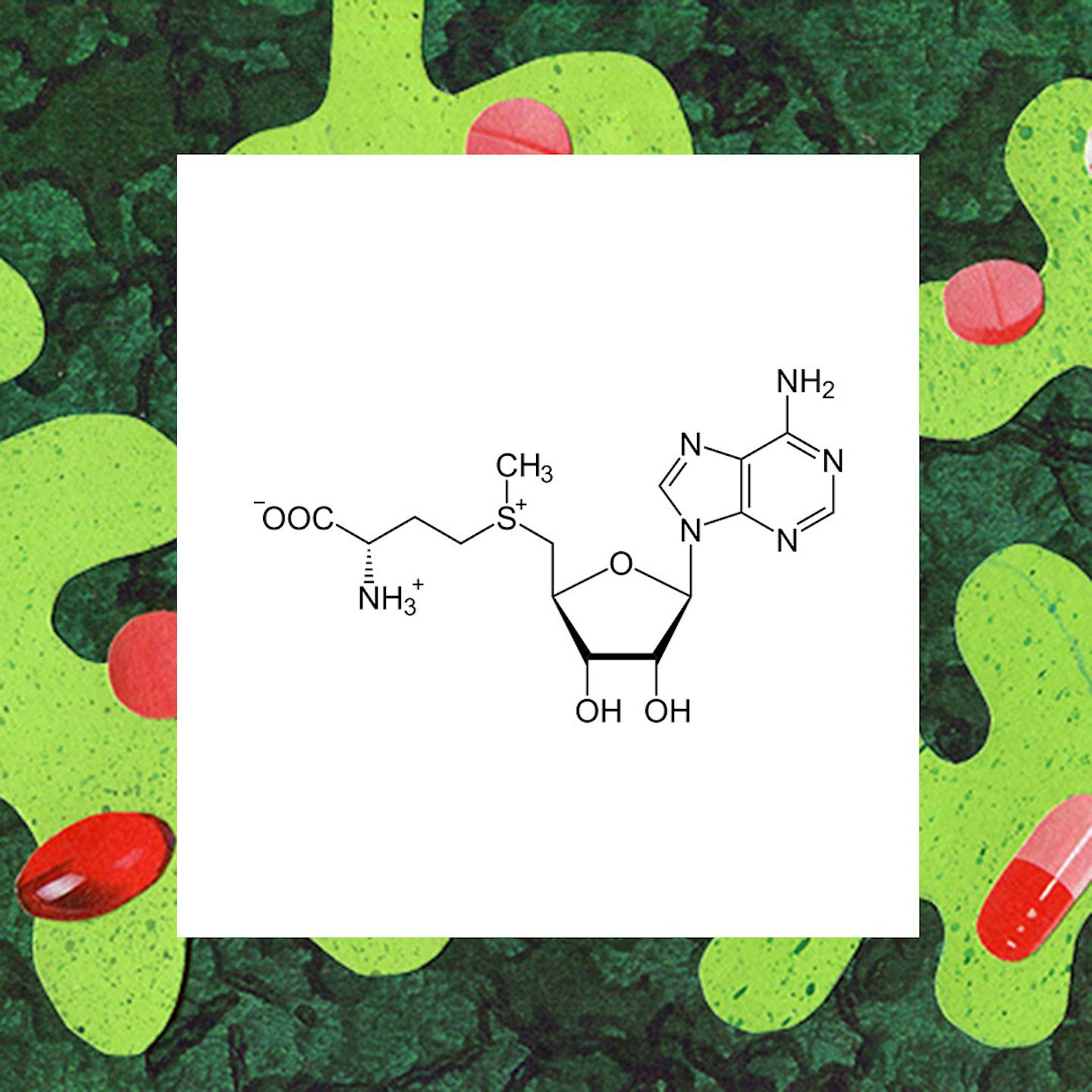 3 of 11
3 of 11S Adenosylemthionine
SAMeis a molecule that the body naturally forms and is available as a dietary supplement. In addition to depression and anxiety, it can be used for many other conditions including heart disease, fibromyalgia, tendonitis and many more. It is also recommended for PMS. It works by making sure that chemicals in the body that play a role in pain, depression, liver disease, and other conditions, actually do their job.
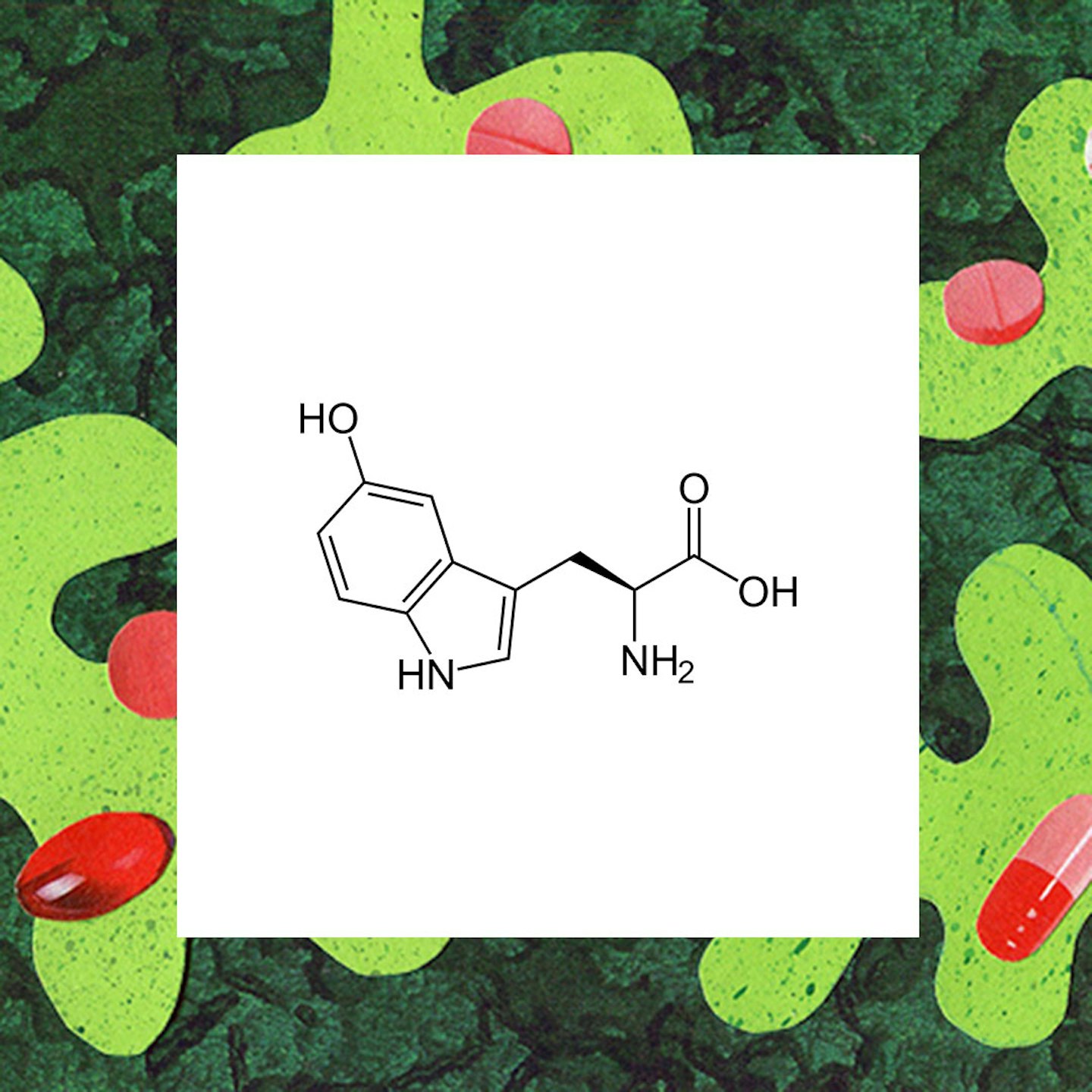 4 of 11
4 of 115-Hydroxytryptophan (5-HTP)
Like SAMe,5-HTP is also a chemical (an essential amino acid) that the body makes naturally. It works by helping to raise the serotonin (the happy hormone) levels in the brain. 5-HTP has been known to have a positive effect on sleep, mood, anxiety, appetite, and pain.
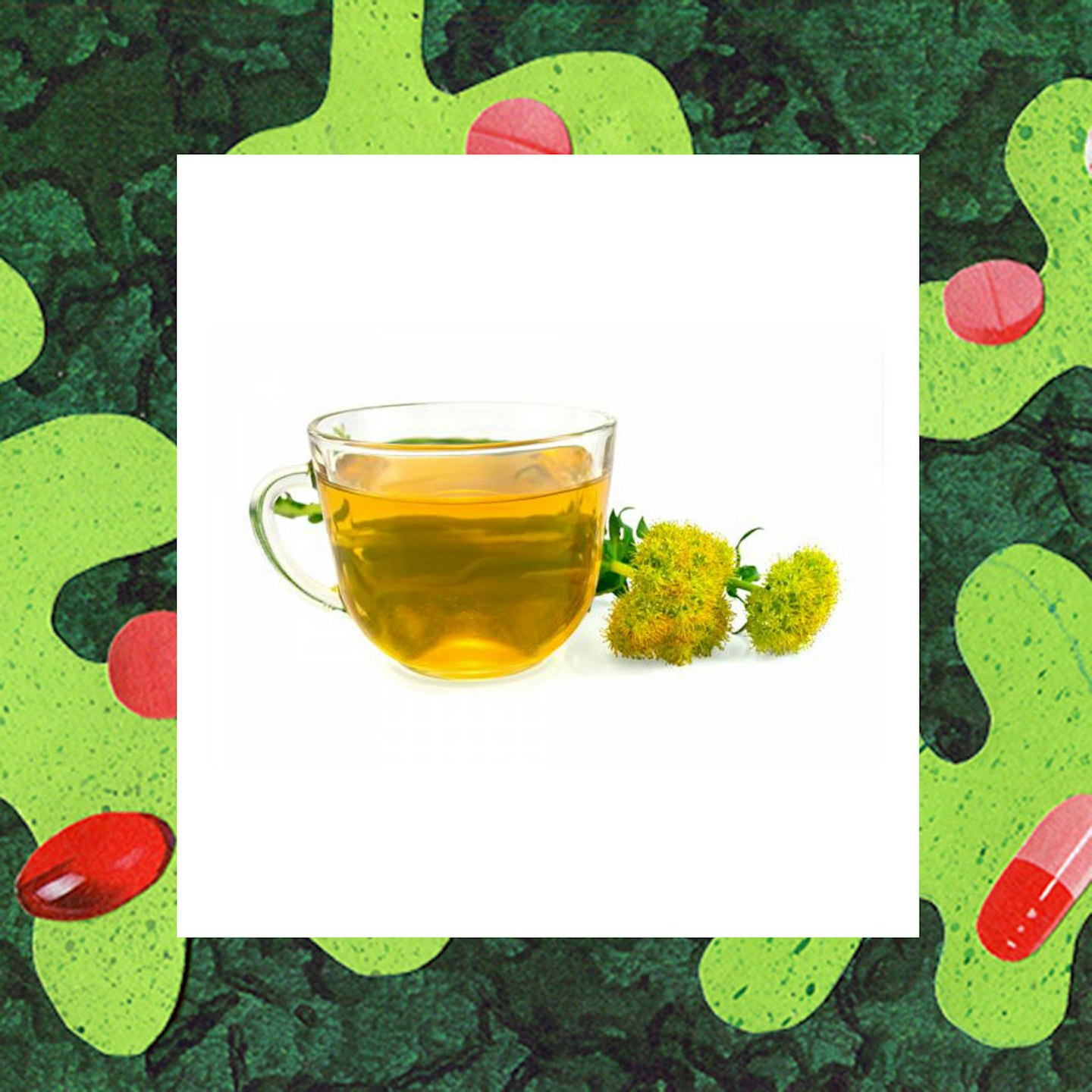 5 of 11
5 of 11Roseroot Herb
A study conducted on whether the Rhodiola Rosea (Roseroot) herb was effective for depression showed that it was almost as effective as the popular antidepressant, Sertraline (Zoloft), but with fewer side effects. The herb boasts strengthening the nervous system, fighting depression, enhancing the immune system and memory, elevating stamina, aiding in weight-loss and increasing sexual function.
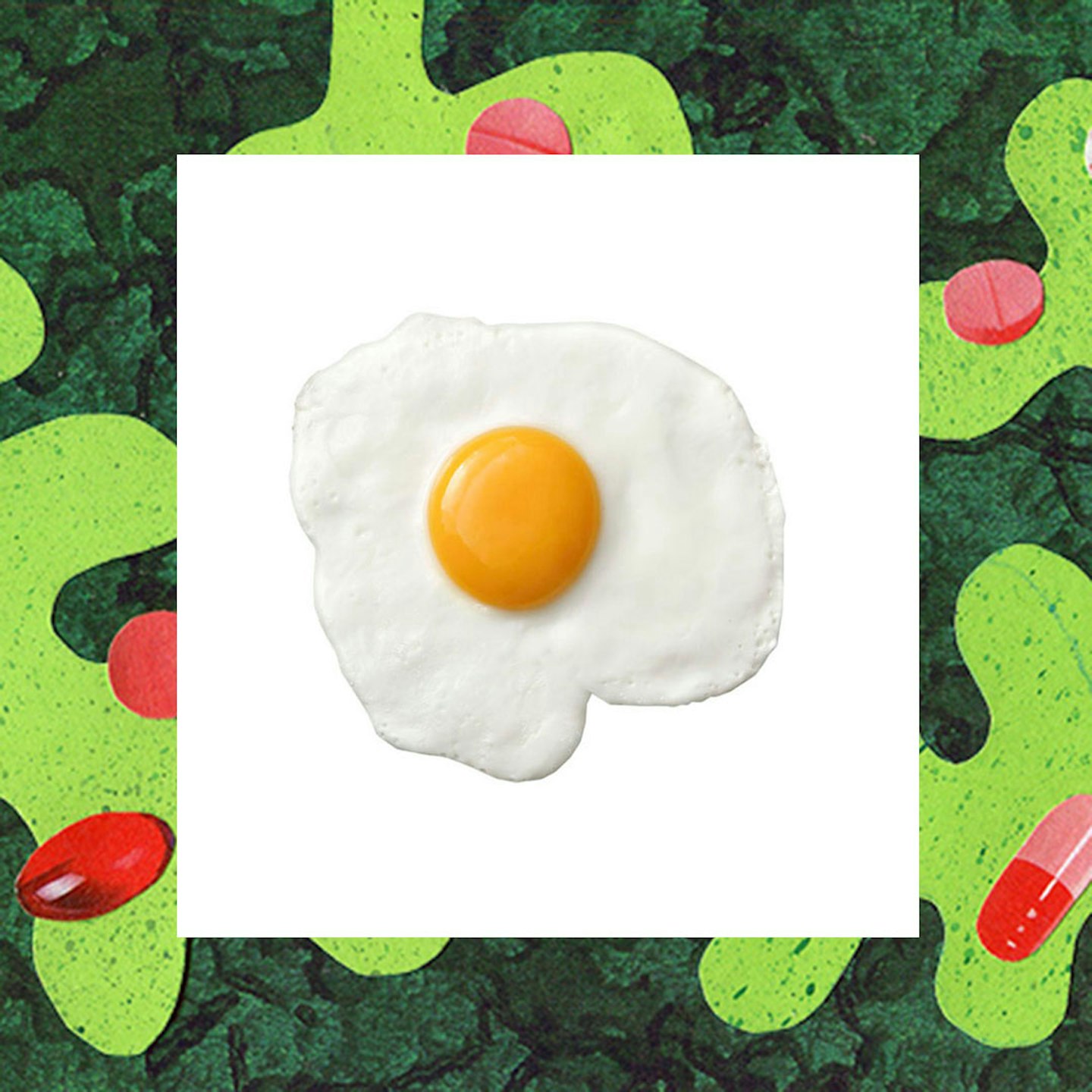 6 of 11
6 of 11Iron
A lot of adults, especially women, suffer from iron deficiency, and guess what? Iron deficiency symptoms are pretty similar to depression symptoms, i.e. fatigue, irritability, and foggy brain. The recommended daily iron allowance in adults is roughly 8 to 18 mg daily (check with your doctor though because everyone's number is different).
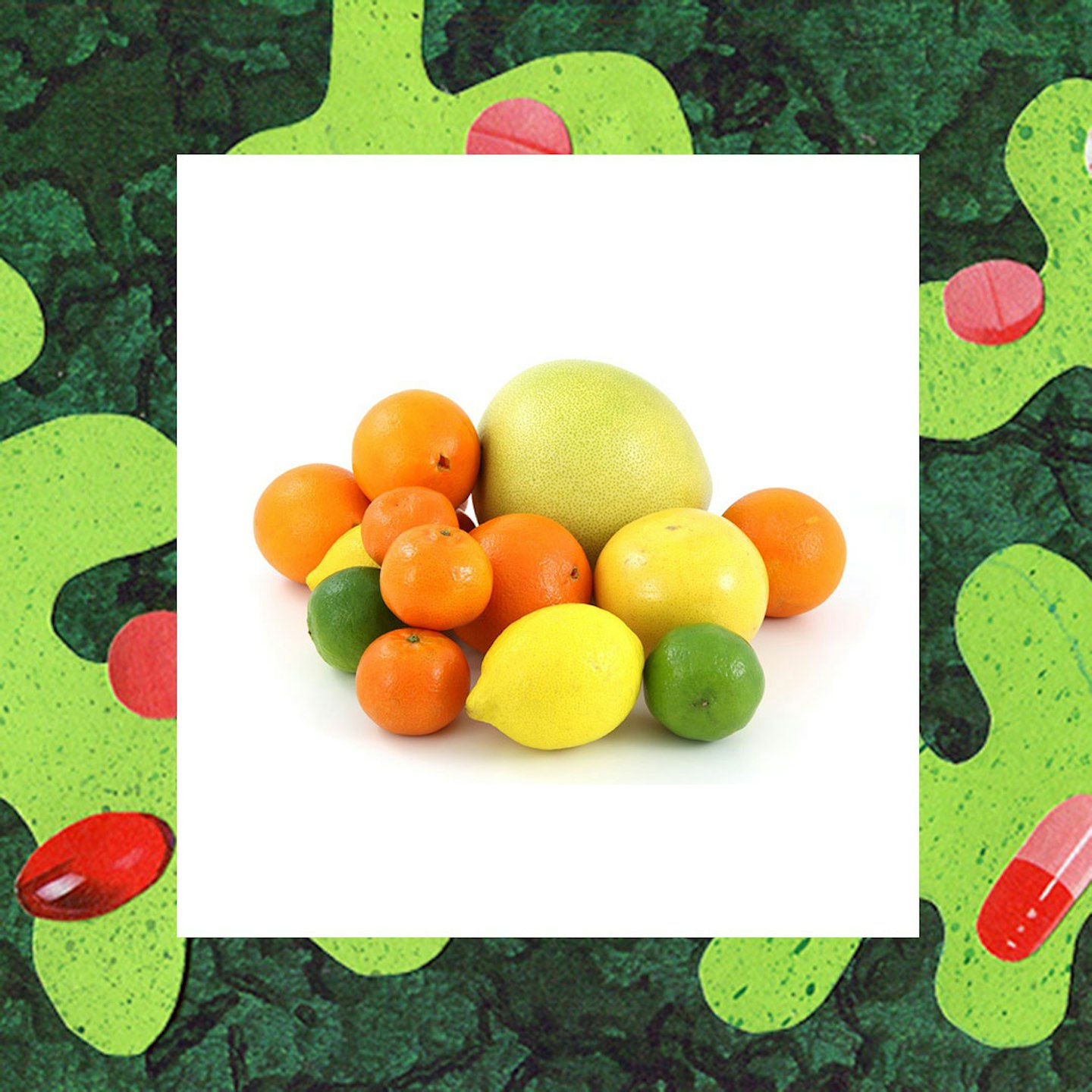 7 of 11
7 of 11Folate
If you don't have enough folate, antidepressants may not work. Some docs prescribe folate along with antidepressants to treat depression and improve the effectiveness the medication. Most adults need at least 0.4mg daily, which you can though food including dark leafy greens, beans and citrus fruit, or as a supplement.
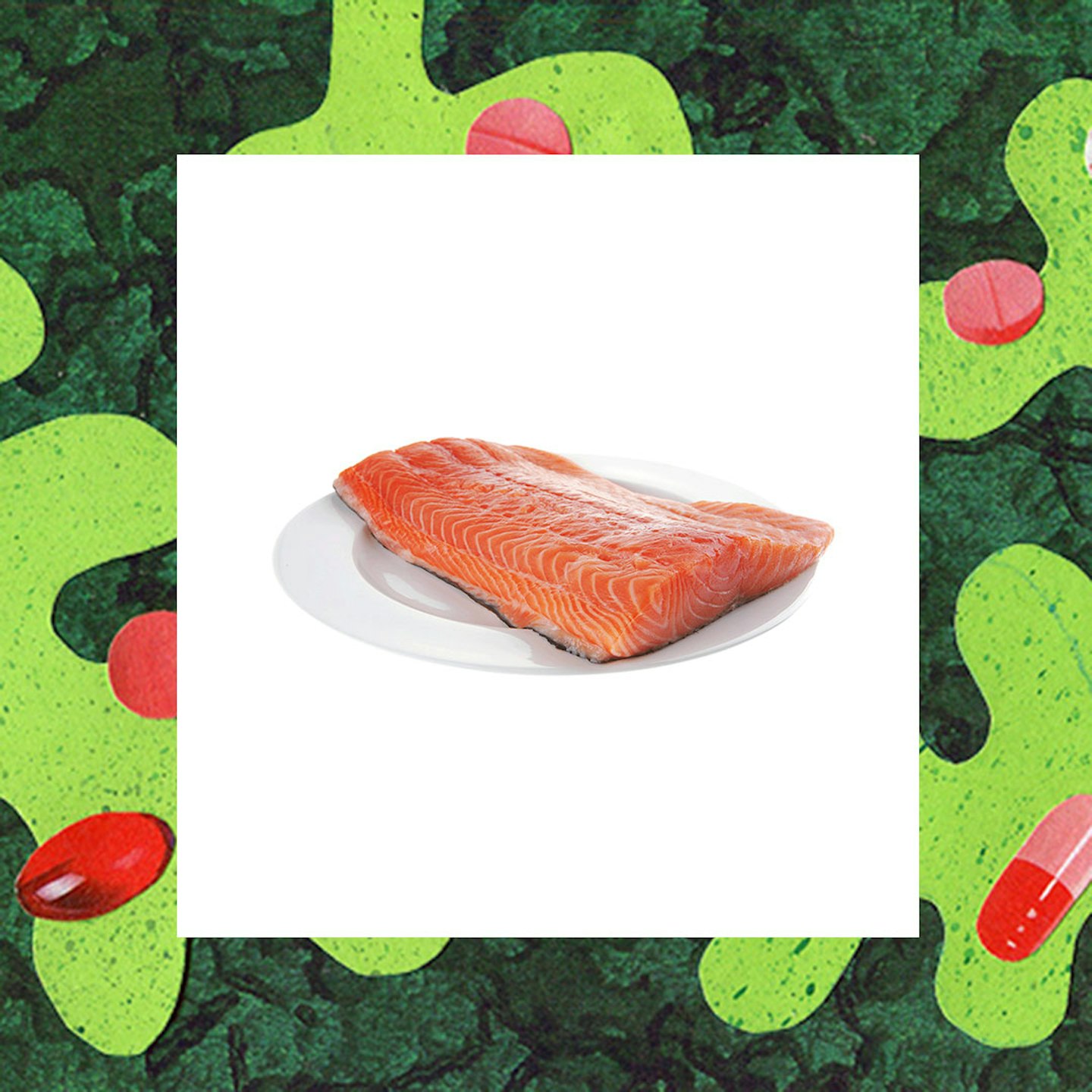 8 of 11
8 of 11B12
Vitamin B-12 and other B vitamins can play a role in producing mood-affecting brain chemicals and low levels of these may be linked to depression. If you have a poor diet and the body can not absorb enough B vits, your mood can be severely affected. Getting a blood test will determine how much of the B goodness you have in your system, and whether you need to stock up. B vitamins are found in animal products like milk, fish, meat and eggs, so if you are a vegan, you should definitely be getting your B's from dietary supplements and vitamins.
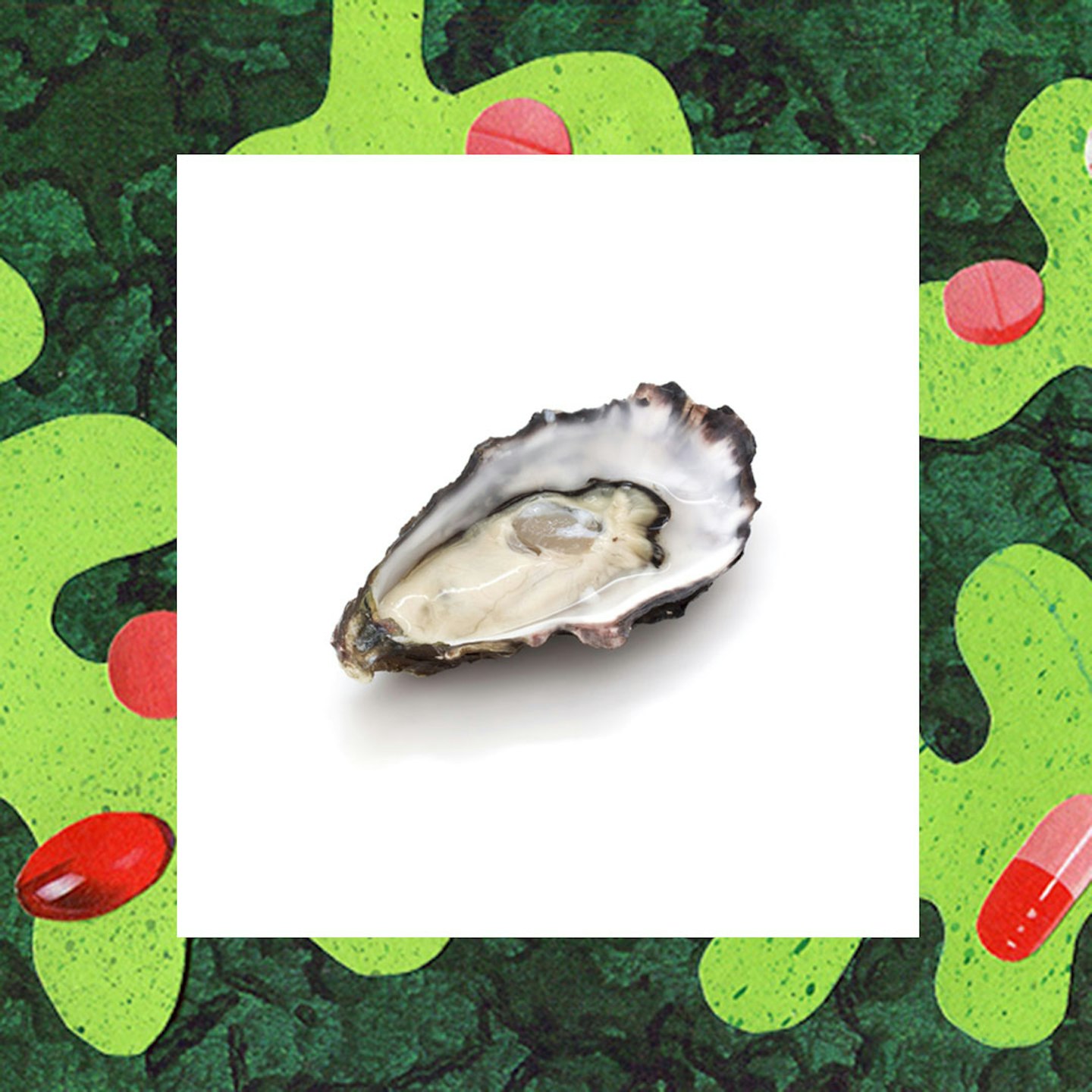 9 of 11
9 of 11Zinc
Zinc is crucial to our system as it activates our digestive enzymes breaking down food, and helps prevent food allergies, which can avert depression. It also helps our DNA to produce and repair proteins, control inflammation and boost our immune system.
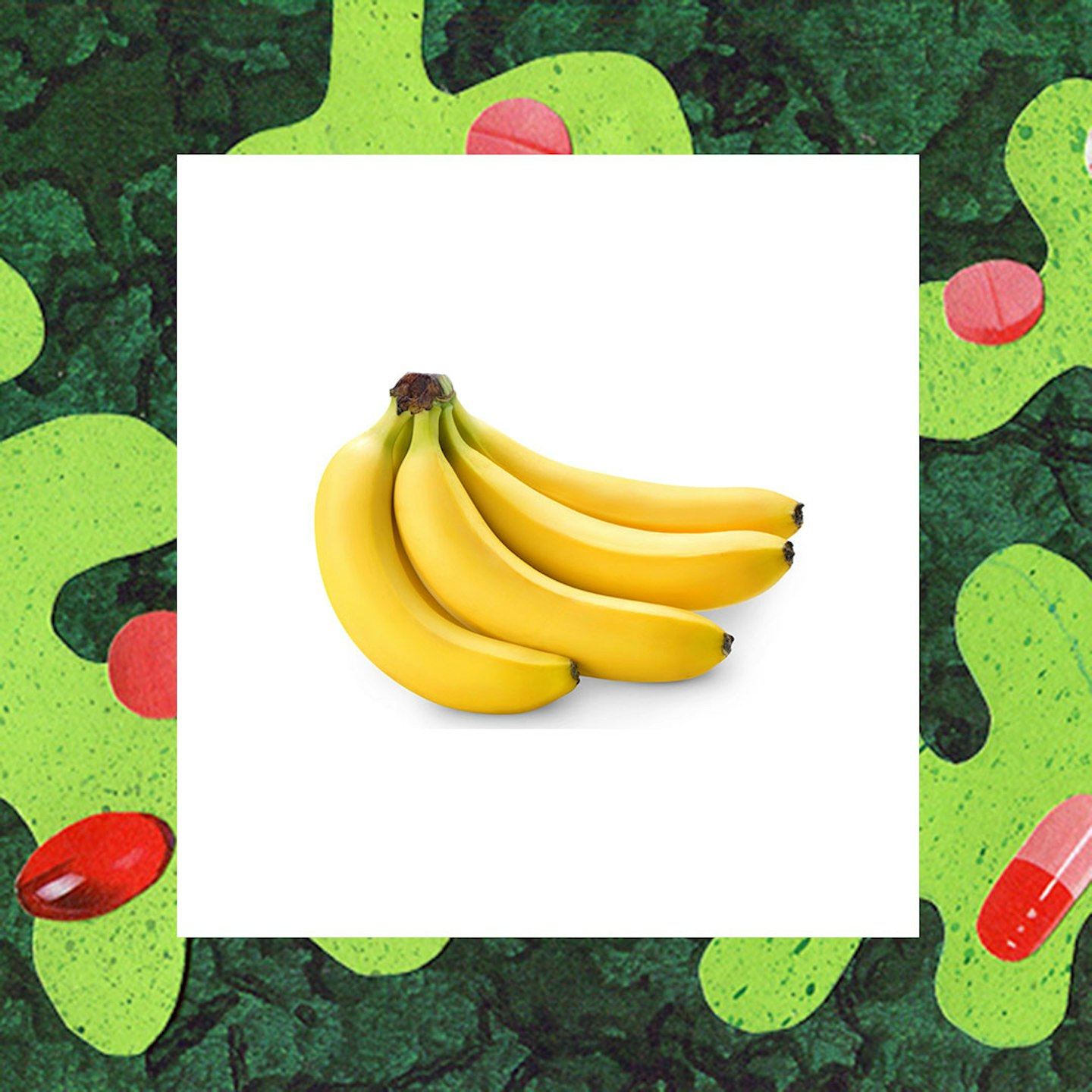 10 of 11
10 of 11Tryptophan
Tryptophan is an essential amino acid which you get through food such as bananas, tamarind, oats, sesame seeds, kiwi and watermelon. Once in the body, it converts to niacin, serotonin and melatonin. Most antidepressants work by increasing the amount of serotonin in the brain and Tryptophan helps to increase serotonin levelswithout the extreme side effects of meds.
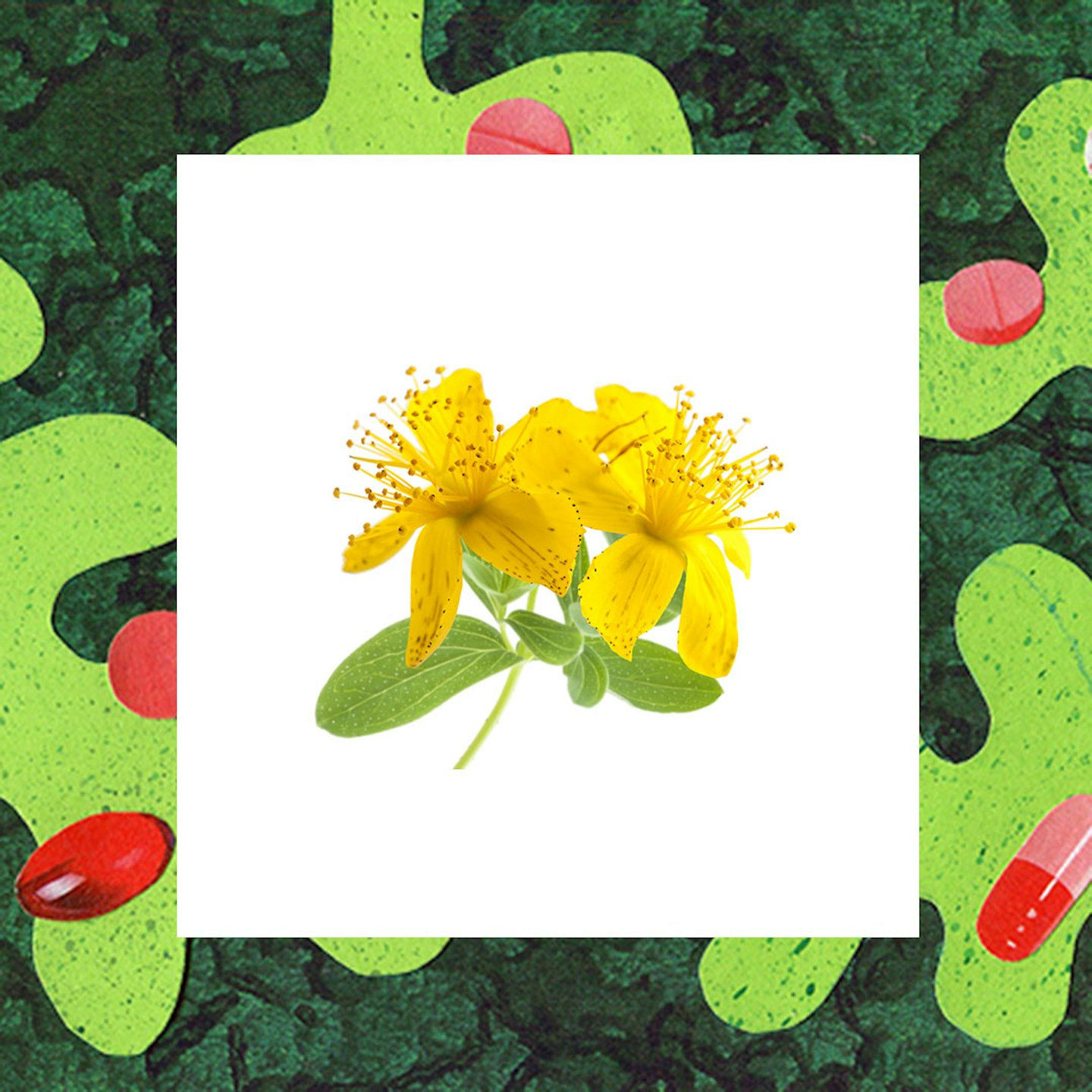 11 of 11
11 of 11St John Wort
St John's Wort has been around for yonks and is one of the most popular natural methods used for dealing with stress, anxiety and depression. It's a plant with yellow flowers. There has been some scientific evidence that St. John's wort may be helpful in treating mild depression. It's been claimed that it works just like regular antidepressants in that it inhibits the reuptake of the neurotransmitters serotonin, norepinephrine, and dopamine.
The truth, as anyone who has ever suffered from mental illness will tell you, is that it doesn’t work like that. Depression can sneak up on you during sweltering summer, you might feel low when everything in your life is looking good on paper and you could be standing in a room full of ebullient, celebrating people in December and feeling more depressed than you’ve ever felt. The third Monday in January may indeed be a difficult day, but any day of the year has the potential to throw you of course.
It will come as no surprise to anyone that Blue Monday was, in fact, invented by a brand back in 2005. It is nothing short of a PR stunt, albeit a very very shrewd one. We owe the ‘most depressing day of the year’ to a man named Dr Cliff Arnall){href='https://en.wikipedia.org/wiki/Blue_Monday_(date)' target='_blank' rel='noopener noreferrer'}; he came up with the pseudo-scientific equation which resulted in today being labelled the most depressing day in our calendars because of the weather, post-Christmas debt, low motivation and the dawning reality that we probably won’t be able to keep many (if any) of our new year’s resolutions.
Why did he do all of this, you might be wondering? Ah, of course, he was being paid by a huge company, Sky Travel, who wanted a unique story that would help them to sell something, holidays. And so, Blue Monday was born and sold to us as the most depressing day of the year, leading us all to the logical conclusion that it was also the best day to book a holiday.
Since its fateful inception, Arnall has faced criticism from pretty much anyone worth listening to, including Mind and The Samaritans. A holiday may alleviate some of the symptoms of depression but it isn’t a long-term solution for clinical depression and, it goes without saying, that not everybody suffering with a mental health problem can afford to drop everything and go away. And, even if they could, there’s no guarantee that a week on a beach would do anything to help their condition. That is why this messaging is problematic on so many levels. It’s almost Victorian to suggest that a period by the sea is as good as medicine in and of itself.
Mind have been trying to counter the Blue Monday myth with a campaign called ‘Blue Any Day’ since 2016. Stephen Buckley, Mind's Head of Information, explained to The Debrief ‘There is no credible evidence to suggest that one day in particular can increase the risk of people feeling depressed and suggesting as such contributes to damaging misconceptions about depression, trivialising a potentially life-threatening illness’. We know that one in four of us will experience a mental health problem in any given year. This could occur at any time for a number of different reasons, there is no one size fits all cause and solution for an illness like depression. One in six of us will experience depression at some point in our lives. It could happen in spring, summer or winter. It could happen when things are difficult because of external factors and it could just happen…
So, today when you’re looking at online lists of things to do/buy to help ‘save you from Blue Monday’, ‘inspirational Instagram’ posts which offer advice on this, the ‘most depressing’ day of the year or bargain holidays that you might as well pop on a credit card, remember that probability says that there is always going to be someone out there who would really appreciate it if you got in touch to ask them how they are not just today, but every day.
Follow Vicky on Twitter @Victoria_Spratt
**WATCH NOW: The Debrief Investigates - Hormonal Contraception And Mental Health **
This article originally appeared on The Debrief.
